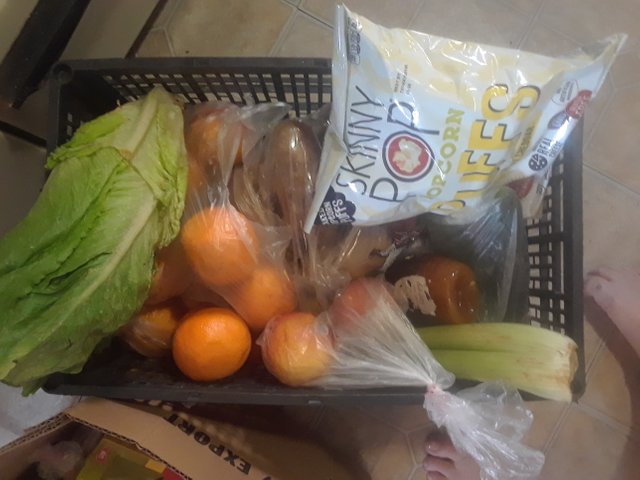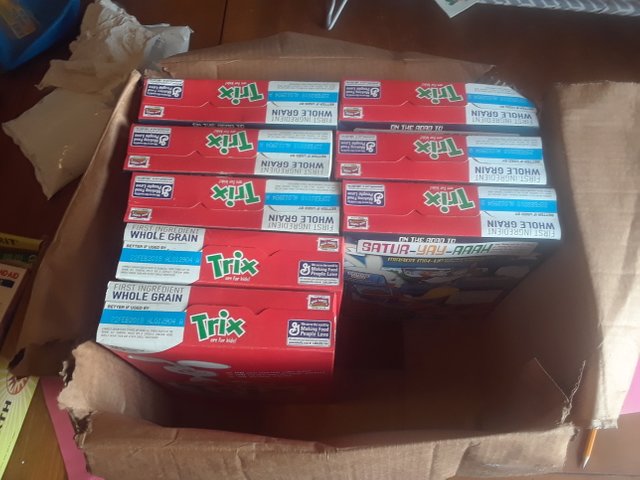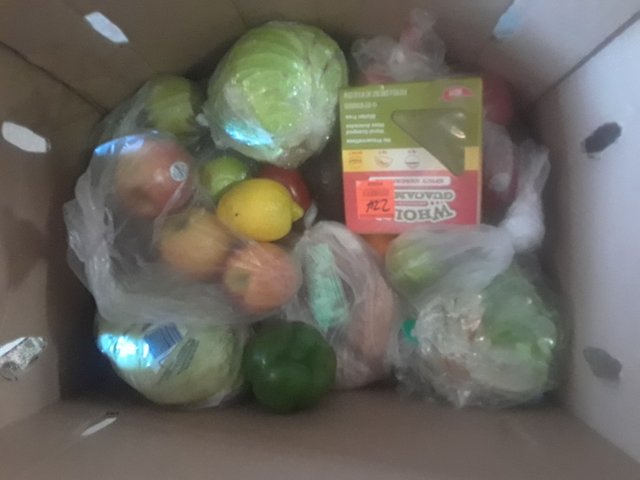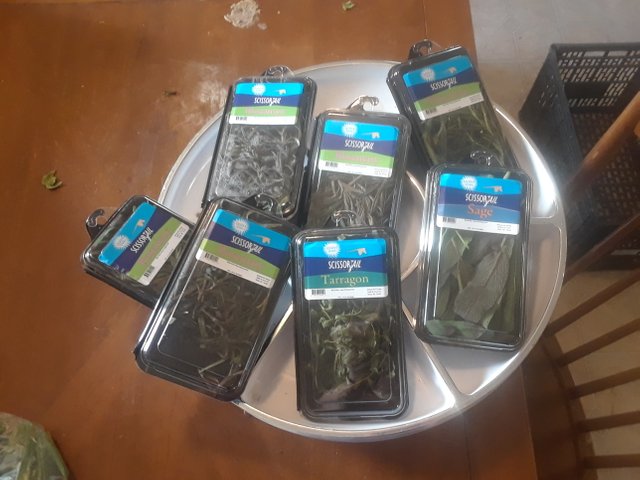Growing up semi-poor in Oklahoma, I was privileged enough to never go hungry, but I was always aware of our food insecurity. My mother had food stamps until she married. After that, we had few opportunities for a variety of healthy foods, but we ate, due in part to the local food bank and discounted “dented can” stores. The food bank often meant we got a treat we couldn’t normally afford as bakeries donated cakes and other baked goods. I wasn’t aware that though we got to have a sugary treat, the bulk of what we received was not very nutritional.
Even now, many of the food banks in the southern states I have visited often only provide preselected bags or boxes of food, sometimes based on family size. Sometimes the amount is set, regardless of the amount of people being fed. Most of what goes into these bags is processed, boxed, or canned foods that are high in carbs and sodium. That kind of diet can contribute to heart disease, weight issues, and even some cancers. 1, 2 Even our local food bank that requires solid income information, serving the “working poor” translates into produce that is wilted, smashed and sometimes rotting.
About a year ago, in Ashland, OR, I called a local food bank. When I asked what was required she simply said, “Are you human? Are you hungry?” I was shocked. Many of our local food banks ask for certain documentation including a current ID, proof of address, and proof of income. Some of these places will not help if you do not have all of this verification. I know of one that even requires verification that you are either actively seeking employment, applying for disability, or already receive disability benefits. These requirements are detrimental to marginalized groups and the homeless especially. According to a report from 2017, the unemployment rate for Oklahoma for 2016 was 4.9%. The year before, the poverty rate was 16.7%, or roughly 608,506 people. For minors in poverty, that rate was higher at 23.7%, or some 207,540 children. (3) The US Department of Housing and Urban Development’s 2017 Annual Homeless Assesment Report shows an increase in homelessness of families in Oklahoma by 11%.
While there is a problem inherent in only helping people who meet certain criteria, namely excluding a demographic in desperate need, an even larger problem is how much food is thrown away instead of in food banks. The USDA claims 40% of all food produced in the United States is wasted. I have personally seen dumpsters packed with edible, good foods. Pounds and pounds of edible produce and products within their expiration in the trash instead of hungry mouths. This realization has led me to become passionate about feeding people. I am in the process of recruiting for a local Food Not Bombs, but that is a story for another post.
Last week, we acquired lettuce, cucumber, broccoli, tomatoes, many apples and oranges, fresh garlic and herbs, cabbage, celery and a case of cereal from local grocery store dumpsters.




These pictures are only half of what we found and a fraction of what is usually available. I often tell people that you could feed a family of four dumpstering weekly.
If you are interested in dumpstering or know someone who could benefit, here are some basic rules:
- Wear protective clothing: jeans or thick pants, closed toe shoes, long sleeves, gloves.
- You’ll need a long pole for moving things around or to help you out of the dumpster, a flashlight, hand sanitizer, some bags or boxes.
- Be aware of your surroundings. Having a friend with you is much safer.
- Be careful of broken glass, metal, or anything else that could break the skin. Wear your gloves! Use your stick and light!
- Know your local laws. Generally it is illegal to dumpster on private property or from locked or gated dumpsters.
- If you are confronted by the owner or law enforcement, be respectful and contrite. Apologize. Do not return to that spot.
- Take only the things you KNOW are being thrown away. Taking anything else is stealing.
- NO MEAT
- Be wary of dairy or refrigerated products. These things can spoil easily in a dumpster on a hot day.
- Never take canned goods past their expiration date. Use common sense for other items. A good rule of thumb is to pay attention to whether the item says “Use by,” “Sell by,” or “Best if used by.” Things that say “Use by” are generally not safe to be eaten past that date.
- Going after stores have closed is the best time. That is when the waste is tallied and disposed of. You may need to go several days in a row to find out when to get the most food.
- Clean up after yourself. Leaving a mess is pretty rude, not to mention unsanitary, and you don’t want negative attention. After leaving a mess, you could come back to find a locked dumpster.
- It is incredibly important to wash everything, yourself included. Discard any produce that the skin has been compromised. Use warm soapy water to wash produce. I use a diluted bleach/dish soap spray to clean sealed packages. Throw away cardboard and paper packaging. If you need to, write down cooking instructions on a piece of paper or take a picture with your phone.
- Take a shower and wash your clothes.
If you need food assistance, and you would rather not dumpster, you can call 211 in most states for a comprehensive list of food banks and other services in your area, or contact your local [Food Not Bombs](http://foodnotbombs.net/new_site/)
If you got this far, thank you for reading! This is my second post on Steemit and I want to reach as many people as possible. Please upvote and resteem and share wherever you do your thing, especially if any of this information will be helpful to anyone you know.
(3) Hunger Quick Facts 2017; Effie Craven MPH, MPA, State Advocacy and Public Policy Director, Oklahoma Food Banks
StackEdit.
Congratulations @reformedpirate! You have completed some achievement on Steemit and have been rewarded with new badge(s) :
Click on any badge to view your Board of Honor.
For more information about SteemitBoard, click here
If you no longer want to receive notifications, reply to this comment with the word
STOPDo not miss the last announcement from @steemitboard!
Downvoting a post can decrease pending rewards and make it less visible. Common reasons:
Submit